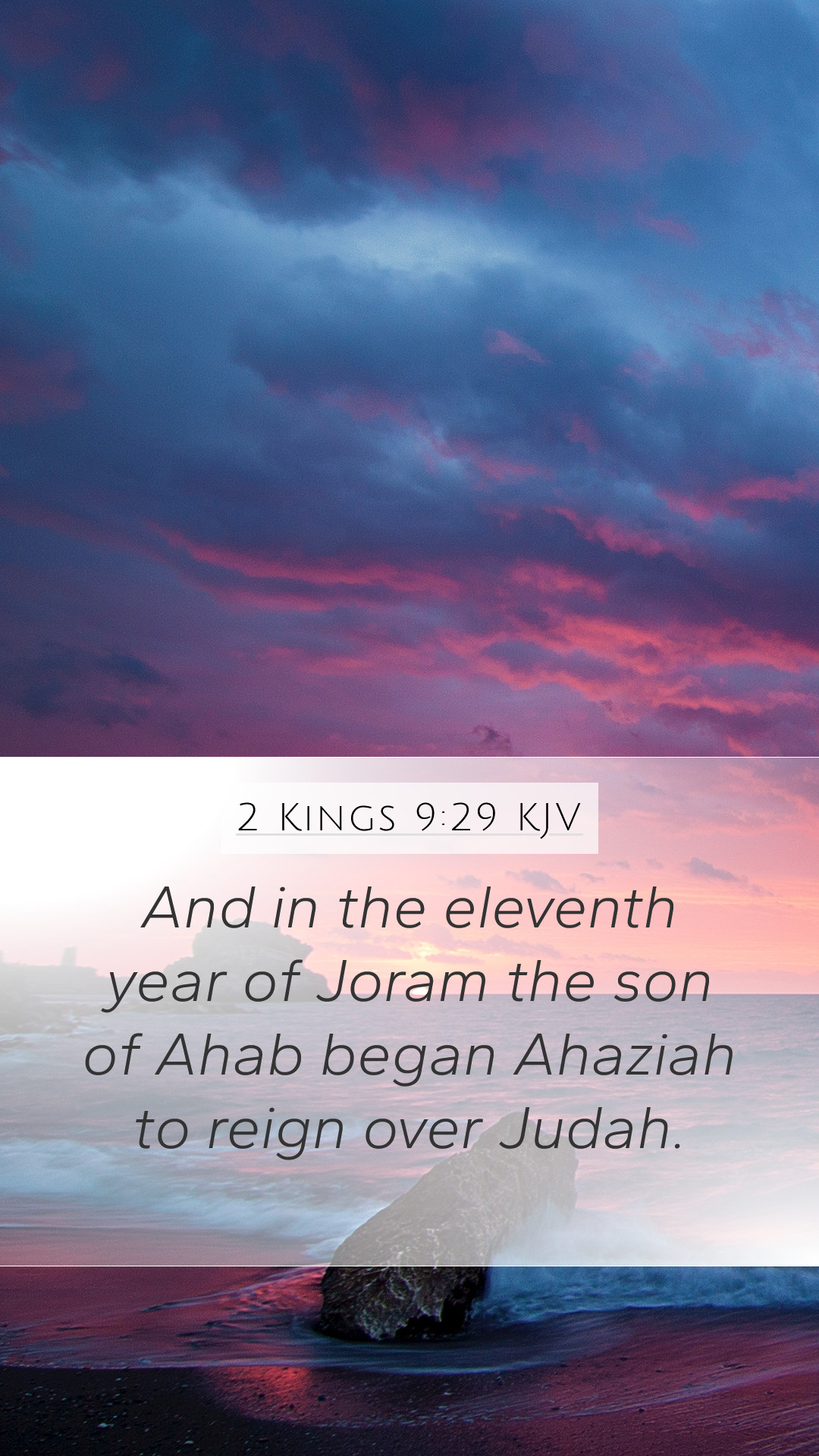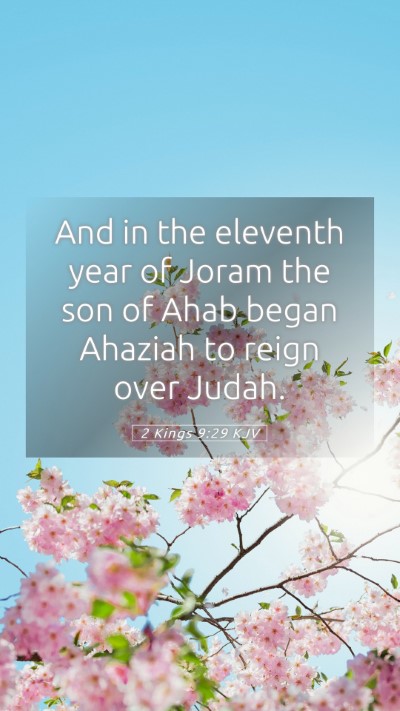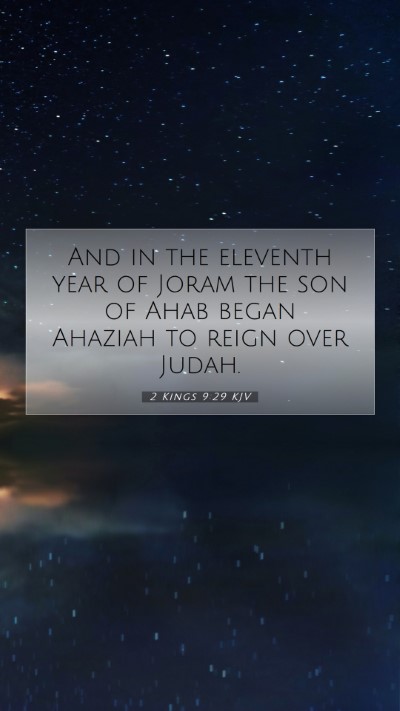Understanding 2 Kings 9:29: A Comprehensive Bible Verse Commentary
Bible Verse: 2 Kings 9:29
In this verse, we see the historical account of King Jehoram's reign and his subsequent demise, marking an important turning point in the narrative of the Israelites. Understanding this scripture reveals deep insights into biblical themes of judgment, fidelity to God's commands, and the fulfillment of prophecy.
Summary and Context
2 Kings 9:29 states: "And in the eleventh year of Joram the son of Ahab began Ahaziah to reign over Judah." To better comprehend this scripture, it's essential to consider the broader historical context surrounding the kings of Israel and Judah.
-
Historical Background: Jehoram, son of Ahab, ruled in Israel during a time of great turmoil, characterized by idolatry and divine judgment. His relationship with the house of David, through King Ahaziah of Judah, was critical in God’s unfolding plan.
-
Significance of Names: The names present in the scripture are laden with meaning. Jehoram (meaning 'YAHweh is exalted') contrasts with Ahaziah ('YAHweh holds')—showing the complex relationship between the worship of Yahweh and the political realities of Israelite kings.
-
Prophetic Fulfillment: The transition of power from Jehoram to Ahaziah reiterates the prophetic pronouncements made by Elijah and Elisha about the downfall of Ahab’s lineage due to their wickedness.
Detailed Exegesis
The mention of Ahaziah's ascension in 2 Kings 9:29 resonates deeply when exploring its significance within the larger narrative of the biblical text. Here’s how various biblical commentators interpret this verse:
Insights from Matthew Henry
Matthew Henry emphasizes the faithfulness of God in fulfilling His word. He implies that the rise of Ahaziah was anticipated due to the decline of Jehoram’s reign. Henry notes that God's judgment on Ahab's household serves as a vital lesson on the repercussions of turning away from divine commandments.
Thoughts from Albert Barnes
Albert Barnes provides a detailed commentary linking 2 Kings 9:29 with earlier prophecies. He highlights that Ahaziah's reign corresponds with significant events, including the impending chaos in Israel and Judah. Barnes elucidates how Ahaziah’s reign was not only a continuation of political struggle but reflects the larger spiritual decline of Israel.
Reflections by Adam Clarke
Adam Clarke discusses the implications of Ahaziah's rule as a critical juncture in biblical history. He expounds on the importance of examining the lineage and decisions of these kings, suggesting that Ahaziah’s rule symbolizes both the hope for change and the stark reality of divine judgment.
Biblical Themes and Applications
The complexities within 2 Kings 9:29 touch on several vital biblical themes:
-
The Sovereignty of God: The rise and fall of kings underscore God's control over human affairs. His choices reflect His righteousness and justice.
-
Legacy of Leadership: The verse serves as a reminder of how leadership can shape the spiritual and moral compass of a nation. Ahaziah inherits a kingdom fraught with the consequences of past rulers’ actions.
-
Judgment and Grace: The transition between these two kings reveals God's judgment on sin, balanced by His ongoing grace for those who turn back to Him.
Application for Today
For contemporary readers, 2 Kings 9:29 encourages reflection on how political and spiritual leaders impact society. As we engage in Bible study groups or online Bible study sessions, we can explore how ancient scriptures provide guidance in our understanding of current events and moral dilemmas.
This verse prompts inquiries like:
- What does this verse say about God's expectations for leaders?
- How can we apply the lessons of judgment and grace in our lives today?
- In what ways do we see similar dynamics in leadership today?
Cross References
To enhance your scripture analysis, consider the following cross references:
- 1 Kings 21:21-22 - The punishment foretold for Ahab's lineage.
- 2 Kings 8:25-29 - The reign of Ahaziah and his relation to Jehoram.
- 2 Kings 10:1-11 - The downfall of Ahab's household and the establishment of God's prophetic judgment.
Conclusion
In summary, 2 Kings 9:29 serves as a profound reminder of the interplay between God's sovereignty and human leadership. Through careful biblical exegesis and historical context, readers can uncover rich lessons about fidelity to God's commands and the profound impact of our choices on future generations.
Whether you are engaging in individual study or participating in Bible study lessons, this exploration of 2 Kings offers invaluable insights into the nature of God's plan for His people.
Explore further and deepen your understanding of the significance of scripture in daily life, and recognize how each verse contributes to the overarching narrative of faith.


